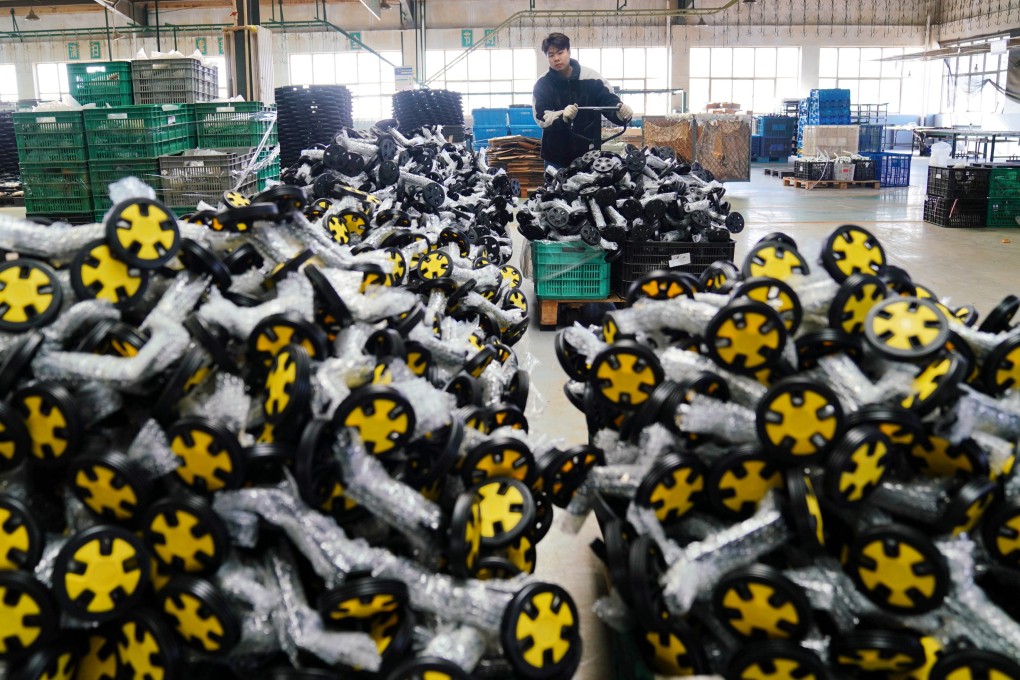China’s factories see activity slump to lowest level in almost 3 years as Covid-19 batters economy
- Official manufacturing purchasing managers’ index slides to 47 in December
- 56.3 per cent of producers have noted big impact from the pandemic on their operations

China’s manufacturing activity contracted sharply in December to the worst level in nearly three years as an avalanche of Covid-19 infections battered the economy, with analysts warning of further risks.
Major subindices gauging production, new orders and deliveries dipped further below the 50 mark that separates growth from contraction, indicating persistent weakness in demand and the overall business climate.
“The pandemic has led to big disruptions to both the supply and demand sides of enterprises, staff attendance and logistics,” Zhao Qinghe, a senior economist at the bureau, said.
Zhao said 56.3 per cent of the producers surveyed noted a big impact from the pandemic on their operations, compared with 40.8 per cent in November, while companies also reported labour shortages.